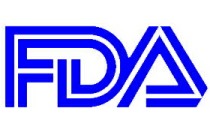The FDA has sent many warning letters to corporations during the month of September 2014. These letters inform the corporation owners of problems with food safety and HACCP violations.
 Well Luck Company in New Jersey received a letter on September 17, 2014 warning about rodent problems at their facility. Live mice were spotted in the facility during an inspection. Dead mice were found on glue traps in the picking area and next to the cooler entrance door. A dead rat was found in a rodent trap in the warehouse storage area. In addition, roach-like insects “too numerous to count” were in the fortune cookie processing room. Equipment was not properly stored, litter and waste was not removed, and food products were spilled onto the warehouse floor.
Well Luck Company in New Jersey received a letter on September 17, 2014 warning about rodent problems at their facility. Live mice were spotted in the facility during an inspection. Dead mice were found on glue traps in the picking area and next to the cooler entrance door. A dead rat was found in a rodent trap in the warehouse storage area. In addition, roach-like insects “too numerous to count” were in the fortune cookie processing room. Equipment was not properly stored, litter and waste was not removed, and food products were spilled onto the warehouse floor.
Losurdo Foods of New Jersey was warned on September 22, 2014 that an environmental sample found the presence of Listeria monocytogenes in the facility. That facility also had serious violations of the current Good Manufacturing Practice regulation for foods. Eighteen of the seventy-two swabs were positive for Listeria, including those that had direct contact with food. The facility did not apply appropriate quality control operations and did not ensure that employees conformed to hygienic practices. In addition, beetle-like insects were found in the Bun Room used for manufacturing pizza dough, and in the Cheese Room.
Double E Dairy in New York was cited with a letter for selling two animals for slaughter that were adulterated; one had too much neomycin residue in the kidneys. The investigators also found that the facility holds animals “under conditions that are so inadequate that medicated animals bearing potentially harmful drug residues are likely to enter the food supply.” In addition, medicated feed was not used as directed by approved labeling.
On September 25, 2014, Multimmunity Inc. of Colorado received a letter that their dietary supplements are misbranded. The product Multimmunity promotes for conditions that cause the product to be a drug, as it is intended for use “in the cure, mitigation, treatment, or prevention of disease.” Testimonials on the web site also describe the product as used for cure or treatment of disease. The product label does not include a statement of identify as a “dietary supplement” as required under law.
Finally, Intershell International Corp. of Massachusetts received a letter stating their facility had “serious violations of the Seafood Hazard Analysis and Critical Control Point (HACCP) regulation. The pasteurized canned crabmeat is adulterated, since it was “prepared, packed, or held under insanitary conditions whereby it may have been rendered injurious to health.” Trucks used to transport the crabmeat were not monitored to insure safe temperatures. There was no HACCP plan, especially since refrigerated pasteurized canned crabmeat must have strict temperature control. And there was no control for Clostridium botulinum toxin formation.




